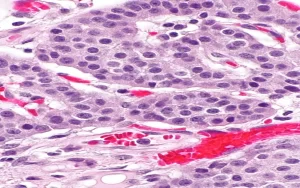If you do not start a proper weight loss diet after being overweight, you will become obese. Obesity has many complications and risks that are not limited to the human body. Sometimes the range of obesity complications goes beyond the body and spreads to the soul as well. Obesity depression disorder is considered one of the diseases of obesity. Although obesity-related depression occurs at all ages, it is more likely to occur in adolescents. Puberty and hormonal changes cause a change in the mood of teenagers, if these changes are accompanied by obesity, it brings more risks. In this article, we are going to examine the causes of depression in obese teenagers and provide solutions for its treatment.
Why do obese teenagers become depressed?
Some research shows that adolescents who suffer from obesity in puberty are more at risk of depression in adulthood. Of course, this risk is not specific to adults and many times it comes to people in their teenage years. One of the reasons for this is lack of movement. A child who does not follow a weight loss diet from the beginning of being overweight becomes fat and cannot exercise enough. Motion games are necessary and obligatory for the mental health of children and adolescents. Accumulation of fats that have not been eliminated with a slimming diet causes the inability to move sufficiently and provides the basis for depression.

Another reason for depression in overweight children and teenagers is the behavior of the people around them. People around give many opinions about obesity and thinness. In the teenage years when one needs to be validated, one is constantly blamed. Sometimes parents also aggravate this issue. Note that by blaming your child, you cannot force him to go on a diet, but you will only distance yourself from him. These blames and comments about the adolescent’s body during puberty cause depression in him. A person hides himself from society due to lack of approval, this isolation increases the risk of depression.
Another reason for the increased risk of depression with overweight is hopelessness. People who try to lose excess weight but are unable to achieve it get frustrated. This disappointment causes dangers such as depression and feelings of failure. It is interesting to note that depression also increases obesity and overweight. A depressed person eats more to calm himself down. He does not have the ability to exercise and move. As a result, he gets fatter and a destructive and vicious cycle is created.
how to prevent obesity depression
One of the ways to get rid of obesity is to go on a slimming diet. Unfortunately, depression causes disappointment in losing weight. When a person is frustrated with his weight loss, he has no motivation to go on a diet. He thinks that no matter what he does, he cannot lose weight and that his efforts are futile. A depressed person is suffering from deep discomfort and fatigue. This deep fatigue does not allow a person to do new things and make new changes in life. Weight loss diet first of all requires determination and patience, which a depressed person unfortunately cannot cope with. If the depression of obesity is not treated and the person follows a slimming diet, the hunger caused by the diet and its restrictions cause more harassment to the person. A depressed person seeks to eat something and relieve himself with it, which he cannot, and as a result, suffers mental damage.
Going on fast weight loss diets to get rid of excess weight also causes obesity depression to increase. In fact, these diets do not give a good response and the weight is not lost or it comes back quickly. This issue causes the teenager’s frustration and depression. In fact, obesity depression both prevents losing weight and reduces success in various situations such as teenage studies, increasing tension and stress and anxiety.
A very effective method for people who are overweight and suffering from diseases caused by obesity, such as type 2 diabetes, knee pain, high blood pressure, etc., is bariatric surgery, including gastrostomy and gastric bypass, which must be performed by a bariatric specialist and surgeon. Obesity and weight loss should be done. Call Dr.zandi now
Symptoms of obesity depression
Most of the time, teenagers who suffer from obesity depression have a family history. If most of the family members are obese, you should take more care of the teenager. Adolescents do not need to be completely obese to develop obesity depression. In many cases, overweight, which may not be visible, causes disappointment, a decrease in self-confidence and, as a result, depression in teenagers. By observing the signs, you can understand that the teenager is suffering from obesity depression. After being overweight, symptoms such as appetite disorders, aggression and anger, sleep disorders, physical pains such as headaches, etc. are among the symptoms that indicate obesity depression.

Aggravating factors of obesity depression
Despite the fact that obese teenagers are more susceptible to depression, some factors increase this disease and its symptoms. Including being blamed by people around. The family may often blame the teenager for worrying about weight. This work has no positive effect on slimming and causes obesity depression. Another factor is the strong insistence of people around to change the eating habits of teenagers. As soon as some people around see a person eating, they blame him.
As a parent of teenagers, you need to watch out for their depression while you educate them in a friendly way about the complications of obesity and provide them with scientific solutions. If some family members mention the teen’s weight in the group, explain that this is their privacy and that they will seek help from a therapist or doctor if they need to consult. Parental supportive behaviors can be very helpful in reducing the depressive symptoms of adolescent obesity.
conclusion
Obesity and overweight in children and adolescents cause a decrease in self-confidence, distance from society and their despair. Obesity depression is caused by these factors. It should be known that obesity depression causes other problems such as the inability to solve problems, aggression, disrupting the hormonal balance and being overweight. All of these factors cause depression in adolescence and its continuation into adulthood. It is possible that the teenagers are not obese, but only being overweight, which has caused them to not wear the clothes they likes, decreases their range of motion, and are ridiculed by the society, which has led them to depression.



